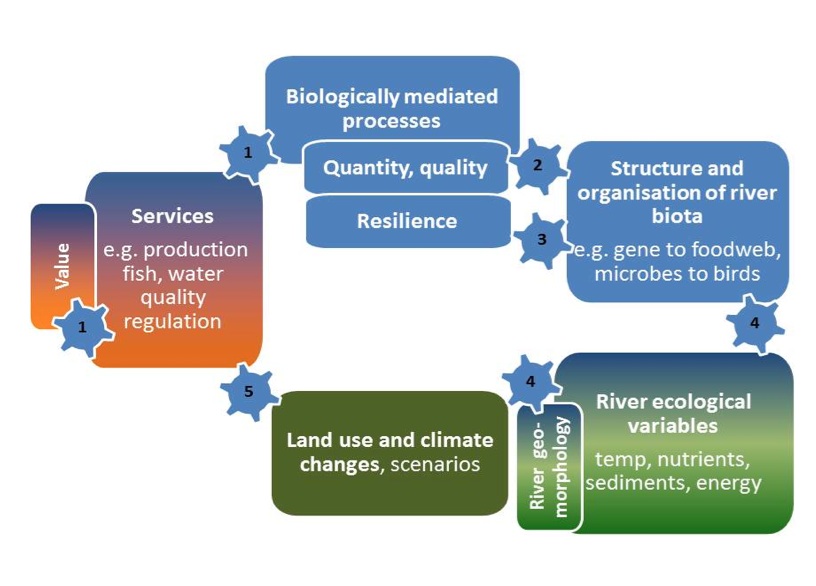 DURESS is an integrated project, and this Figure shows how six themes will address the key objectives.
DURESS is an integrated project, and this Figure shows how six themes will address the key objectives.
Theme 1 (led by Havard Prosser) will investigate global changes and pressures on rivers in the study region now and in future, developing scenarios of catchment land use and climate with inputs from the project partners.
Theme 2 (led by Guy Woodward) will investigate links between biodiversity, ecosystem processes and ecosystem services. At various scales, we will analyse, measure, manipulate and model variation among organisms within riverine food webs (microbes, invertebrates, fishes and birds) and the process they drive to determine how biodiversity change will affect the selected ecosystem services now and under land-use/climate change.
Theme 3 (led by Steve Ormerod) will identify resilience factors and potential thresholds in service delivery. For organisms of contrasting generation time and whole food webs, we will use new or existing time series to assess variations in assemblages and ecosystem functions under climate/land use combinations. Biodiversity features important to service resilience will be evaluated.
Theme 4 (led by Nick Chappell) will quantify the link between distributed changes in catchment land-use and management, climate, river ecological variables and river biota for a range of river physical characters, and at a range of scales. This will be used to predict the potential impact of scenarios identified in Theme 1 on river biodiversity and ultimately, using results from Themes 2&3, on ecosystem services.
Theme 5 (led by Mike Christie) will evaluate economic and health cost-benefits of changes to river provisioning, regulating, and cultural services. This exercise will capture i) the total impact of the future scenarios on river ecosystem services (WP1), and ii) the specific contribution that river biodiversity makes to ecosystem service delivery.
Theme 6 (led by Isabelle Durance) will synthesise and disseminate the main findings. It will suggest operational tools or measures to implement the ecosystem service approach for rivers. Policy advice will stem from interaction with the advisory committee and other consultees in the stakeholder community.
